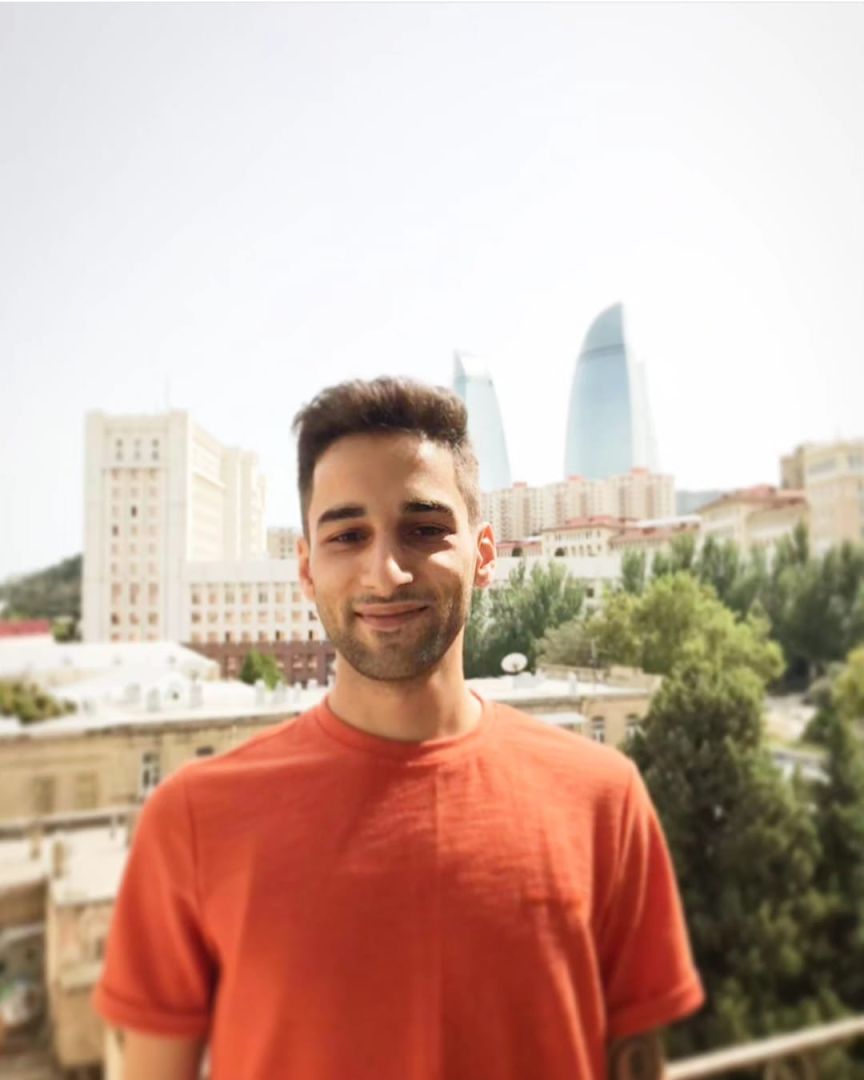Potentials for sustainable development of green energy in Azerbaijan
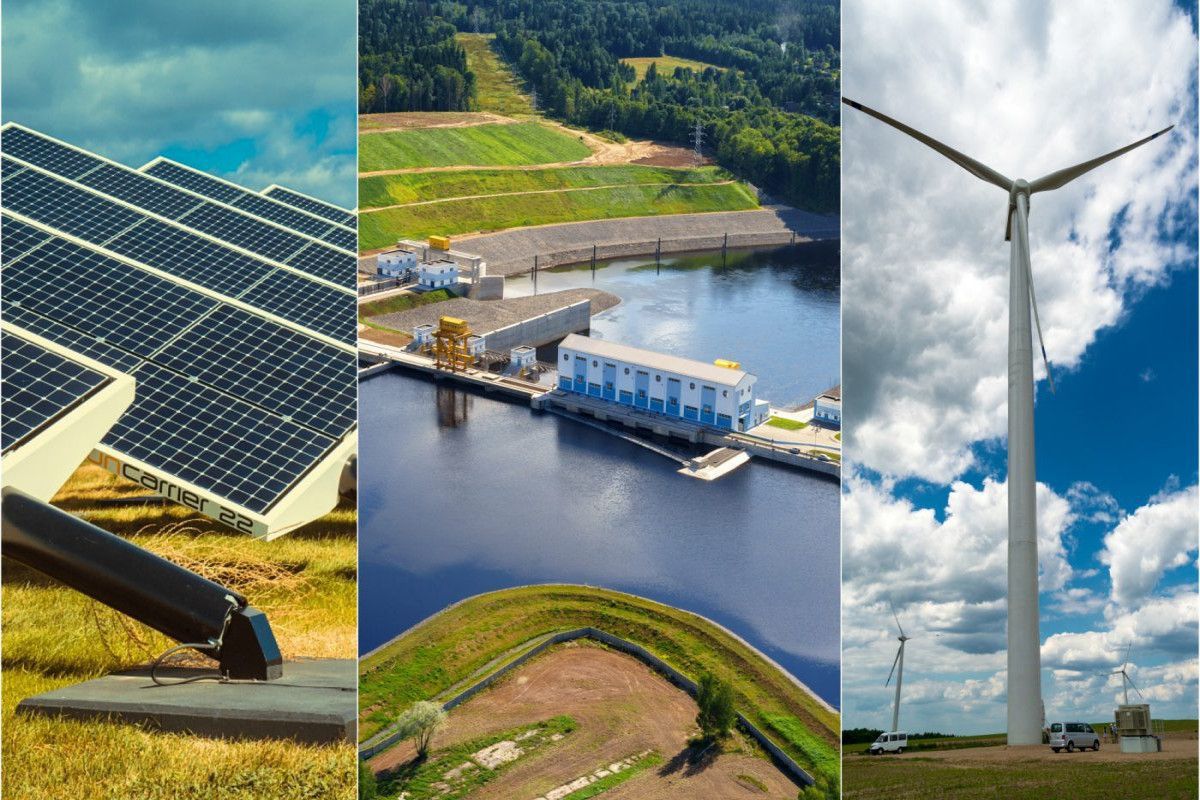
Large-scale resettlement of citizens in the liberated territories through sustainable settlement and reintegration of economic activities is one of the five national priorities of Azerbaijan outlined in the 2030 Strategy, which was developed on the basis of the UN document "Transforming Our World: The 2030 Agenda for Sustainable Development".
After the conclusion of the peace agreement between Armenia and Azerbaijan in November 2020, Azerbaijan immediately started the reconstruction, rehabilitation, and reintegration of liberated Garabagh, which was subjected to colossal destruction during the Armenian occupation over the past 30 years.
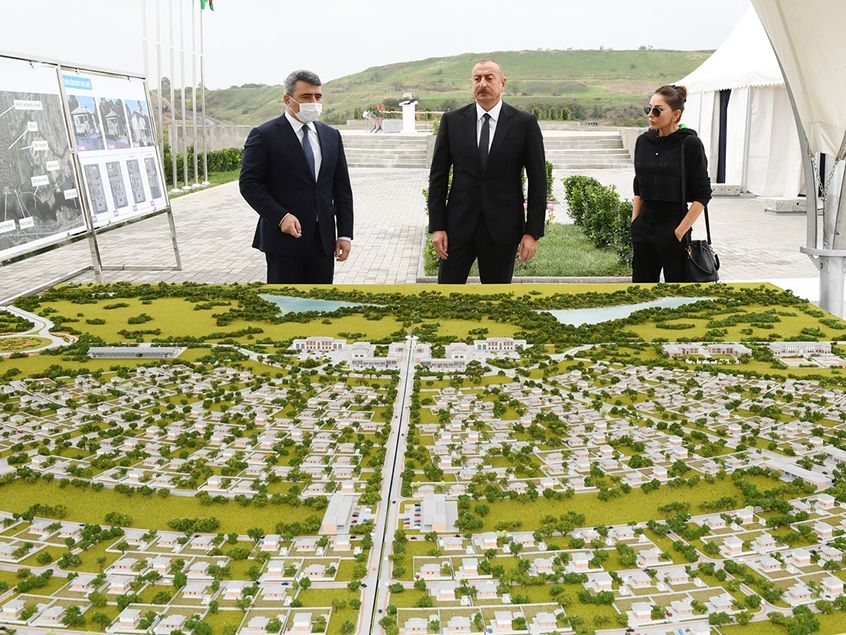
Azerbaijan intends to mobilize all resources and stakeholders to revitalize Garabagh, transforming "ghost settlements" into "smart cities" and "smart villages", paying special attention to the needs of the most vulnerable groups - 1 million internally displaced persons (IDPs) and refugees.
The first village to be reconstructed as a "smart village" was Aghali village of Zangilan district, as well as the neighboring parts of this district - Aghali 1, Aghali 2.
The concept of building smart villages includes environmentally friendly houses, renewable energy sources, and new infrastructure providing schools, houses, kindergartens, and other types of buildings in the consumption of green energy that will be distributed throughout the territory of smart villages. The first state program "Great Return" in the liberated territories provides for the return of more than 40 thousand families by the end of 2026, referring to the special representative of the President of the Republic of Azerbaijan on the liberated territories Emin Huseynov. Similar projects will be implemented in the "Bash Garvand" village of Aghdam district, and unlike the previous two projects, the planning of this project will be done by Slovak specialists, where the financing will be done by the Azerbaijani state.
Within the framework of the project on the basis of the concept of "smart village," it is planned to restore the village with a total area of 470 hectares, where at the first stage it is planned to return more than 6000 people, at the subsequent stage 1170.
Today, Azerbaijan has fully regained its sovereignty over the previously occupied lands by carrying out a brilliant local operation to neutralize the terrorist organizations infesting the territory of Garabagh. The Garabagh clan of separatists has been put to an end and a full-scale operation on reintegration of the Armenian inhabitants of Garabagh in accordance with the Constitution of the Republic of Azerbaijan has been launched.
Azerbaijan's significant interest is seen in the reconstruction and transformation of the previously occupied, as well as polluted lands into new ecologically clean green energy zones. After the activity of the separatist clan, the process of returning IDPs to their native lands is difficult, as a huge amount of territory is sown with mines, and the soil is not favorable for irrigation and introduction of agriculture, after the activity of mining companies during the occupation of Armenians.
What is a smart city and why is it needed?

A simplified understanding of the concept of "smart city" defines it as a component of technological development, and sustainable development, which selects cities and communities as target groups improving the way of living and working in the city. According to the UN Foundation population data, more than half of the world's population lives in rapidly growing cities, and urban population growth is expected to reach 70% by 2050. The main reason for "urbanization", which leads to huge consumption of resources, and negative environmental impacts, is the growth of the urban population. This rapid population growth leads to technical, social, and infrastructural problems such as waste management, air pollution, and health problems. In order to significantly improve health care, management of economic parts of social needs and requirements, education, urbanization, and its drawbacks, the state finds solutions in the implementation of the Sustainable Development Plan 2030, and in this case, the "smart city" will help us to do so.
Rapidly growing technological progress in most cities of the world contributes to the introduction of developing AI in most infrastructures of the states, in the implementation of digitalization, the introduction of new databases on the population for quality service of the needs of citizens, gradual replacement of internal combustion engines with environmentally friendly electric motors.
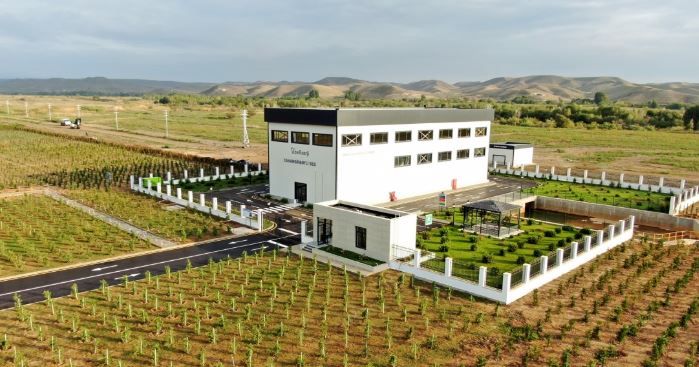
The favorable geographical location of Azerbaijan and the economic region of Garabagh contribute to the implementation of the construction of the energy sector on renewable energy sources in the upland mountains, land, and sea routes.
Azerbaijan is one of the main suppliers of energy resources to the European Union countries. Many Arab countries have built and invested in the developing energy sector on renewable energy sources in liberated territories. Countries like Turkiye, UAE, and the Czech Republic along with companies from France, Britain, etc. have started construction and investment in the economic sector of Azerbaijan in its favorable geographical location.
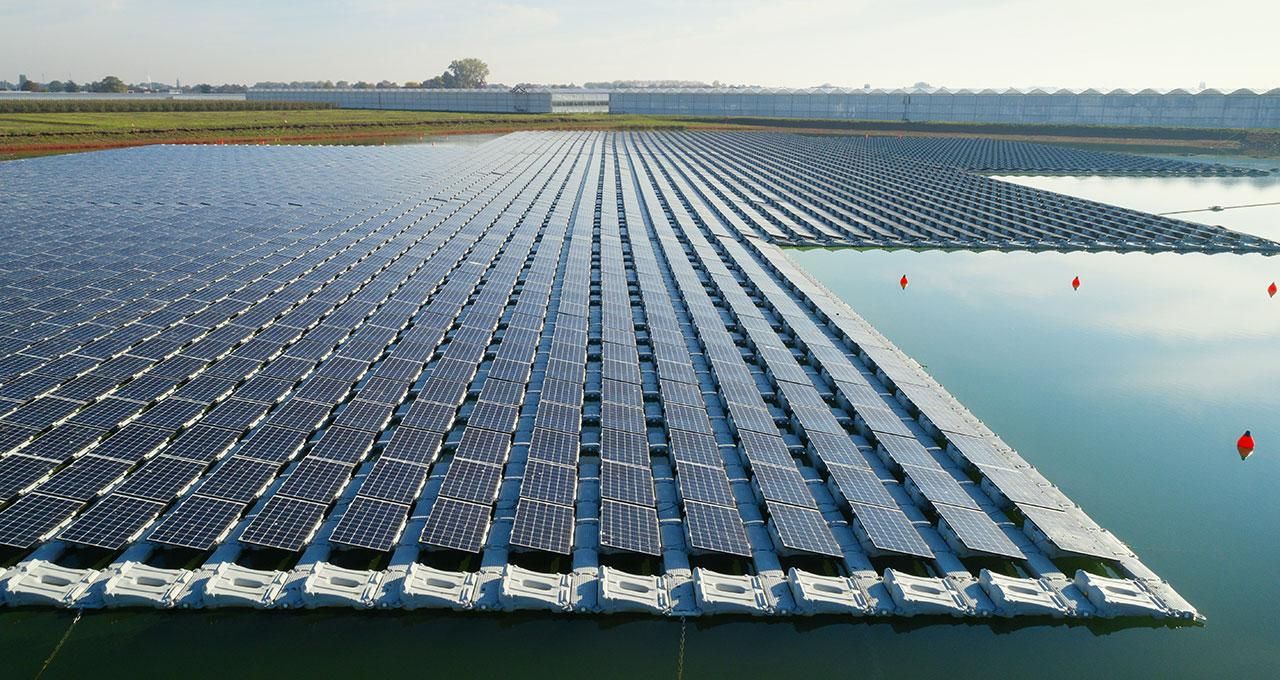
Azerbaijan is cooperating with TotalEnergies and Nobel Energy to build solar power plants with a total capacity of 650 MW and further export the generated electricity to Turkiye. Nobel Energy plans to commission a 100 MW solar power plant at the initial stage.
The Azerbaijani-Turkish Energy Forum and the International Conference "Nakhchivan - Green Energy Zone" held in Nakhchivan contribute to the opening and construction of important economic and energy-dependent infrastructures. As of today, at least 1000 MW of renewable energy from Nakhchivan is planned to be exported.
With foreign investment, with 5000 MW of renewable energy generation potential in Nakhchivan, the strategic goal for Azerbaijan is to create approximately 1500 MW of wind and solar power generation capacity. At the initial stage, Masdar is also planning to build a 150 MW solar power plant in Azerbaijan.
Czech Engineering is also interested in cooperation with the Ministry of Energy of Azerbaijan on the construction of a solar power plant in the Sadarak district of Nakhchivan on the border with Turkiye, as well as on the construction and utilization of power transmission lines.
The German company Notus intends to implement green energy projects in Nakhchivan, where the construction of a 70 MW solar power plant in the northwest of Nakhchivan, near the border with Turkiye, is considered a pilot project at the initial stage.
In addition to the technological part of development, Azerbaijan is rapidly building agro-parks in the liberated territories in accordance with the priority of Garabagh revival, with the aim of realizing the industrial potential of the region, reintegrating it into the country's economy and providing employment for the population, in accordance with the relevant decrees of the President of the Republic of Azerbaijan. The Aghdam Industrial Park was established in Aghdam city and the Araz Valley Economic Zone Industrial Park was established in Jabrayil district.
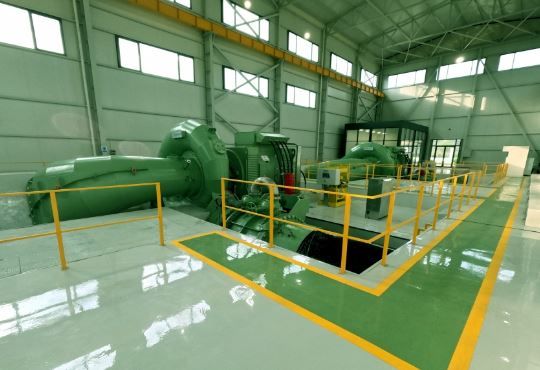
On 28 September, President of the Republic of Azerbaijan Ilham Aliyev attended the inauguration of the Jahangirbeyli hydroelectric power plant of the Azerenerji Open Joint Stock Company. In accordance with the order of the President of the Republic of Azerbaijan to create a new potential of "green energy" in the territories liberated from occupation, AzerEnergy will build 10.5 megawatts of power at four sites in autumn 2022 in the Okhchuchay section passing through Zangilan district, where construction of a number of hydroelectric power plants with a total capacity of 42 megawatts has been started. Construction work on the Sarykishlak, Shayifly, and Zangilan HPPs is nearing completion. Work on the Jahangirbeyli HPP has been completed.
As of March 2023, 37 small HPPs with a total capacity of 240 MW are under construction.
11 hydropower plants have been put into operation. Aghdam Industrial Park and Araz Valley Special Economic Zone have been put into operation.
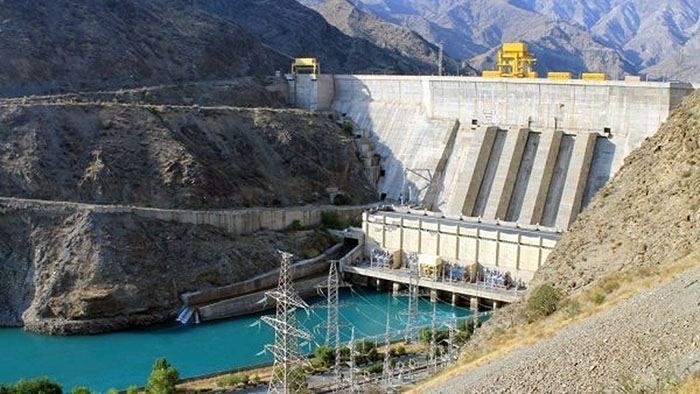
The 42 MW Zangilan series of hydroelectric power plants, which President Ilham Aliyev inspected in May this year, is the first major energy project fully built in the territories liberated from occupation. This project was realized in a record time of just one year. Until now, neither in Azerbaijan nor elsewhere has there been the fact of construction of hydroelectric power plants in such quantity, or capacity, in this period.
It is reported that in the engine room built for Jahangirbeyli HPP, two eco-friendly certified eco turbines of European production of French type with a capacity of 5.25 megawatts each, generators and remote-controlled digital equipment have been installed. The plant will produce more than 30 million kilowatt hours of electricity per year.
All this once again shows that Azerbaijan has achieved great achievements by creating all these facilities and infrastructure in the territories it liberated from occupation in the last three years, and has even undertaken a responsible mission as an energy carrier to European countries. With its recent anti-terrorist measures, Azerbaijan once again demonstrated that it owns its sovereign territories and is a guarantor of peace and security in the region.
----
Abbas Ganbay is AzerNews’ staff journalist, follow him on Twitter:
---
Follow us on Twitter @AzerNewsAz
Here we are to serve you with news right now. It does not cost much, but worth your attention.
Choose to support open, independent, quality journalism and subscribe on a monthly basis.
By subscribing to our online newspaper, you can have full digital access to all news, analysis, and much more.
You can also follow AzerNEWS on Twitter @AzerNewsAz or Facebook @AzerNewsNewspaper
Thank you!

